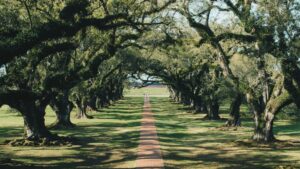In the bustling world of hospitality, hotels stand as icons of comfort, luxury, and relaxation. Often nestled amidst picturesque landscapes, trees play an integral role in enhancing the ambiance and allure of these establishments. However, beyond their aesthetic appeal, trees can carry substantial economic and environmental value. Understanding when hotels need a tree appraisal becomes crucial, not only for preserving natural beauty but also for making informed decisions that impact the bottom line.
Enhancing Property Value
Trees on hotel properties contribute significantly to the overall value of the establishment. A well-maintained landscape with mature trees can increase property value by up to 20%. Tree appraisals provide hotel owners and investors with a comprehensive understanding of the worth of their arboreal assets, aiding in strategic decision-making regarding property development, renovations, and marketing.
Mitigating Risks
As majestic as they may appear, trees can pose significant risks if not properly assessed and maintained. Dead or decaying trees, improper pruning, and inadequate root systems can lead to property damage, injury, or even fatalities. Conducting tree appraisals helps hotels identify potential hazards and implement mitigation strategies to safeguard guests, staff, and property.
Regulatory Compliance
Many municipalities enforce regulations regarding the preservation and management of trees, especially in urban areas. Hotels must adhere to these guidelines to avoid legal repercussions and fines. Tree appraisals provide valuable insights into the health, species, and condition of trees, facilitating compliance with local ordinances and environmental regulations.
Environmental Stewardship
Hotels are increasingly adopting sustainable practices to minimize their ecological footprint and appeal to environmentally-conscious travelers. Trees play a vital role in carbon sequestration, air purification, and biodiversity conservation. Understanding the ecological value of trees through appraisals enables hotels to implement conservation measures, such as tree preservation plans, sustainable landscaping, and reforestation efforts.
Insurance and Financial Planning
Trees represent a significant asset for hotels, which should be adequately protected against unforeseen events such as storms, vandalism, or disease outbreaks. Insurance companies often require detailed assessments of trees to determine coverage and premiums. Tree appraisals help hotels assess the replacement cost of trees, negotiate insurance policies, and develop financial plans to address potential losses.
Marketing and Branding
The natural beauty of trees can be a powerful marketing tool for hotels, enhancing their brand image and attracting discerning travelers seeking unique experiences. Tree appraisals provide quantifiable data on the value and health of trees, which can be leveraged in promotional materials, websites, and social media campaigns to differentiate the hotel from competitors and appeal to environmentally-conscious guests.
Conclusion
In the dynamic world of hospitality, hotels must recognize the inherent value of trees beyond their aesthetic appeal. A tree appraisal offer a comprehensive understanding of the economic, environmental, and regulatory aspects of arboreal assets, empowering hotels to make informed decisions that enhance property value, mitigate risks, ensure regulatory compliance, and promote environmental stewardship. By investing in tree appraisals, hotels can safeguard their investments, attract eco-conscious travelers, and contribute to the preservation of natural ecosystems for generations to come.


